Help! How Do I Ask for Help?!?
Guy Raz Newsletter – April 24, 2025
This week’s episode is about SNAP founder Evan Spiegel.
On the surface, Evan’s story might seem like a blissful, frictionless ride—a young man floating effortlessly from one triumph to the next.
He was a standout high school student. Went to Stanford. Dropped out at 21, just three credits shy of graduating.
And within three years, he was leading a company—Snapchat—valued at over $3 billion.
But, as with all the stories on How I Built This, it’s not that simple.
As you’ll hear, there was friction. Plenty of it. And there were many challenges along the way (still are—have you seen Snap’s stock price lately?).
Most importantly, Evan’s story reveals a critical trait—maybe even a secret weapon—that many successful founders (and humans, really) share:
He asked for help.
A lot.
He reached out cold to founders and VCs in the Valley—before he even had an app. He somehow got Scott Cook, the founder of Intuit, to offer advice.
He found mentors who helped him sharpen his ideas. Eventually, he asked experienced people how to structure a business and build a cap table.
In our interview, Evan talks about how generous people in tech—especially in Silicon Valley—can be with their time and wisdom. This might surprise some people. But in my experience, it’s true.
Most people want to help. It’s just that many of us are afraid to ask.
That idea was echoed again for me this week as I finished reading a new book by my friend José Andrés (he was on HIBT back in 2016).
In the book, José tells a story about being offered the chance to run a kitchen just outside Barcelona when he was barely 19. Determined to prove himself, he worked harder than everyone else—and refused to ask for help, even when he was in over his head.
One day, during lunch service, he made a massive tray of canelones (a Spanish version of stuffed cannelloni) for a party of 24. Confidently balancing the tray with one hand, he headed toward the dining room, pushing through the double doors.
Just before he reached the threshold, a colleague offered, “Can I get the door for you?”
José declined. He didn’t want to look weak.
You can guess what happened next...
As he walked through the “out” door, a waiter burst in through the “in” door—jarring the tray, sending steaming canelones flying through the air... and straight into the live lobster tank.
It was a moment that left a mark—and a lesson José still lives by:
“Say yes to help.”
And I’d add: don’t be afraid to ask for it.
The worst anyone can say is “no.”
Enjoy the Journey
On this week’s Advice Line, I asked Jonathan Neman (the co-founder of Sweetgreen) a question I often ask guests at the end of an interview:
What advice would you give your younger self?
And without missing a beat, he said:
“Enjoy the journey.”
It’s such a simple phrase.
We’ve all heard it before.
But when Jonathan said it, you could tell it came from experience. From years of building and growing a company through some incredibly high highs… and some pretty intense lows.
Jonathan talked about moments when he felt on top of the world. And others when he wasn’t sure if Sweetgreen would survive.
And yet, looking back, he wishes he had taken time to enjoy more of it. To not get too caught up in the stress or the pressure.
Then he added one more piece of advice that really stuck with me:
“Don’t take anything too seriously. This too shall pass.”
It’s something I’ve heard in different ways from so many founders over the years.
Like Ben Chestnut of Mailchimp, who bootstrapped his company for nearly two decades before selling it for billions. When I asked him how he kept going all those years, he told me he tried to treat the business like a creative project, not a race.
And that’s something I’m still learning, too.
The truth is, building anything—whether it’s a business, a podcast, a career—is going to come with peaks and valleys.
There are going to be days when you feel like it’s all working… and days when you feel like nothing is.
So I guess the question I’m thinking about this week is:
How do you keep going without losing yourself in the ups and downs? How do you make space to enjoy the ride even (or especially) when it’s bumpy?
Would love to hear your thoughts.
I hope you have a fantastic week!
—Guy
Come See Me in Washington DC Tonight!
If you are in or near Washington DC on Thursday night come see me and Jose Andres discuss his new book: Change the Recipe
Jose is a wonderful incredible person who I’ve got to know over the years.
And I am really excited to join him on stage in DC.
Stop by if you can! Tickets still available here.
My Conversation with Jon Batiste
Last week I mentioned my conversation with Jon Batiste on Creativity. That conversation is now available to view here:
Looking for fun Summer Music Festival?
My dear friends Noah and Kelly Dorrance are the founders of Bloodroot and Reeve Wineries.
For a third year in a row, they will host one of the coolest outdoor Summer music festivals in California: The Ramble.
The Ramble is a day amazing music, outstanding food and wine and great vibes. The festival was founded in honor of their niece who tragically lost her life in a school shooting in Nashville.
All proceeds go to the Giffords foundation to help bring about sensible gun safety policy.
On the Podcasts This Week!
Snap: Betting Big on a Disappearing Idea
When Evan Spiegel first pitched the idea for a disappearing photo app, most people thought it was a joke.
But Evan wasn’t building a toy, he was rethinking the way people communicate. And while early press labeled Snapchat as an inappropriate app, users saw something else: a playful, pressure-free way to talk to friends.
Still, building a breakout social platform is never easy.
From co-founder disputes to investor drama, near-copycat apps, and one massive acquisition offer… Evan had to learn fast, trust his instincts, and keep building (even when others didn’t get it.)
Tune in to hear how he turned a dorm-room idea into an app used by over 450M people on a daily basis! And why saying no to $3 billion was just the start.
HIBT Advice Line: Grow With Heart
This week on the Advice Line, I’m joined by Jonathan Neman, co-founder of Sweetgreen. From scaling to 250+ stores to launching Sweetgreen’s new Infinite Kitchen, Jonathan knows how to balance growth and soul.
First up, Dini: How do I scale without losing the heart of my pie business?
Dini McCullough built Dini’s Divine Pies on handmade recipes and personal storytelling. Now, a national wholesale deal is on the table. Jonathan’s advice: define what success means to you—mass market or cult classic?
Next, Matt: How do I grow my mushroom farm without losing quality?
Matt Penstein runs Underground Mushroom Co. and sells out every week. But he’s struggling to scale while staying sustainable. But we think Matt shouldn’t rush to raise capital. Instead, focus on smart pricing and small tweaks to fund the next steps.
Finally, Joey: Should I expand the menu or double down on wings?
Joey Cornell’s Dak Dak Korean Wings is crushing it with a focused menu. But he’s considering adding a few new options. Our take is clear: be known for wings first. Nail the core before adding layers.
Jonathan reminds us: enjoy the ride. If you’re not having fun building your business, it might be time to realign.
If you would like to be featured on an upcoming episode, call and leave a 1-minute message at 1-800-433-1298 or send a voice memo to hibt@id.wondery.com
Dan Smith of Bastille and the Real Meaning Behind “Pompeii”
Before arenas and platinum hits, Dan Smith was quietly writing songs in his bedroom. He was too shy to perform and more interested in becoming a film critic than a pop star.
In this episode, Dan shares how he stumbled into the spotlight with Bastille and why he never writes about himself directly. He also shares how a brutal review nearly unraveled his confidence just as his career was taking off.
Dan opens up about his unconventional creative process, the role of fiction in songwriting, and why he still sees himself as an introvert who just happens to make music that resonates on a global scale.
If you’ve ever wondered how to stay grounded while your art takes off, this one’s worth a listen!
Watch it on YouTube:
Arnold Donald of Carnival Cruise Lines: Navigating Crisis with Fresh Leadership
When Arnold Donald stepped in as CEO of Carnival Corporation, the company was facing a storm (literally and figuratively). A series of public relations crises had rocked the cruise line’s reputation, and the path forward wasn’t clear.
So Arnold, naturally shooks things up.
He replaced seven of nine cruise line heads, bringing in a wave of new talent who offered fresh ideas and diverse perspectives.
For Arnold, diversity wasn’t just the right thing to do, it was a business imperative. By creating a culture of inclusive thinking, he helped Carnival not only recover but reemerge as one of the most valuable brands in the industry.
Science Podcasts for Kids!
Party Time for Planet Earth!
Mindy is throwing the most bonkerballs Earth Day bash the Wow crew has ever seen – complete with sand, saltwater, a miniature sun, and even a mountain or two!
In this week’s Wow in the World, it’s a party 4.5 billion years in the making.
We explore the real ideas scientists are using to help fight climate change (like cow masks for burps, vacuums that suck up CO₂, and shiny suits that reflect sunlight). There’s even a solar-powered driveway and some very questionable inventions from Mindy herself.
It’s a celebration of Earth! And a reminder that saving the planet starts with one WOW idea at a time!
Cell-abrate Good Times!
Did you know your cells each hold 6 feet of DNA?
Or that you could fit 10,000 of them on the head of a pin?
And here’s a big WOW… if atoms were the size of tennis balls, your blood cells would be as big as San Diego!
This week, we’re zooming way in to explore the teeny-tiny world of cells in a science-packed round of Two What’s And A Wow!
From the Archives!
Sweetgreen: Nicolas Jammet and Jonathan Neman
In 2003, three college friends at Georgetown were frustrated by the lack of healthy, affordable food on campus. So they decided to solve the problem themselves.
During their senior year, they opened a tiny 500-square-foot restaurant serving fresh, seasonal salads made with organic ingredients. They had no experience, barely any money, and almost ran out of both five months in.
But their vision of fast food that was actually good for you caught on.
Today, Sweetgreen has grown into a national brand with 100s of locations, blending locally sourced ingredients with cutting-edge tech to rethink what fast-casual can be.
Roblox: David Baszucki
In the early 2000s, David Baszucki was chasing something viral.
After selling an educational tech company, David set his sights on something bigger: a digital universe where people could play, build, and connect. So in 2006, he and co-founder Erik Cassel launched Roblox: a user-generated gaming platform where the possibilities were endless.
Want to run a pizza shop, escape from jail, or build your own game from scratch? Roblox made it all possible.
The platform steadily grew, but during the early days of the pandemic, it exploded. At one point, half of all kids in the U.S. were using Roblox to stay connected with friends.
Today, Roblox is worth over $40 billion. And David’s vision of interactive, player-driven worlds has reshaped how an entire generation plays online.
See you next time!
What do you want more or less of?
Just send a tweet to @guyraz or a message on IG to @guy.raz or LinkedIn and put #GuyRazNewsletter at the end so I can find it.


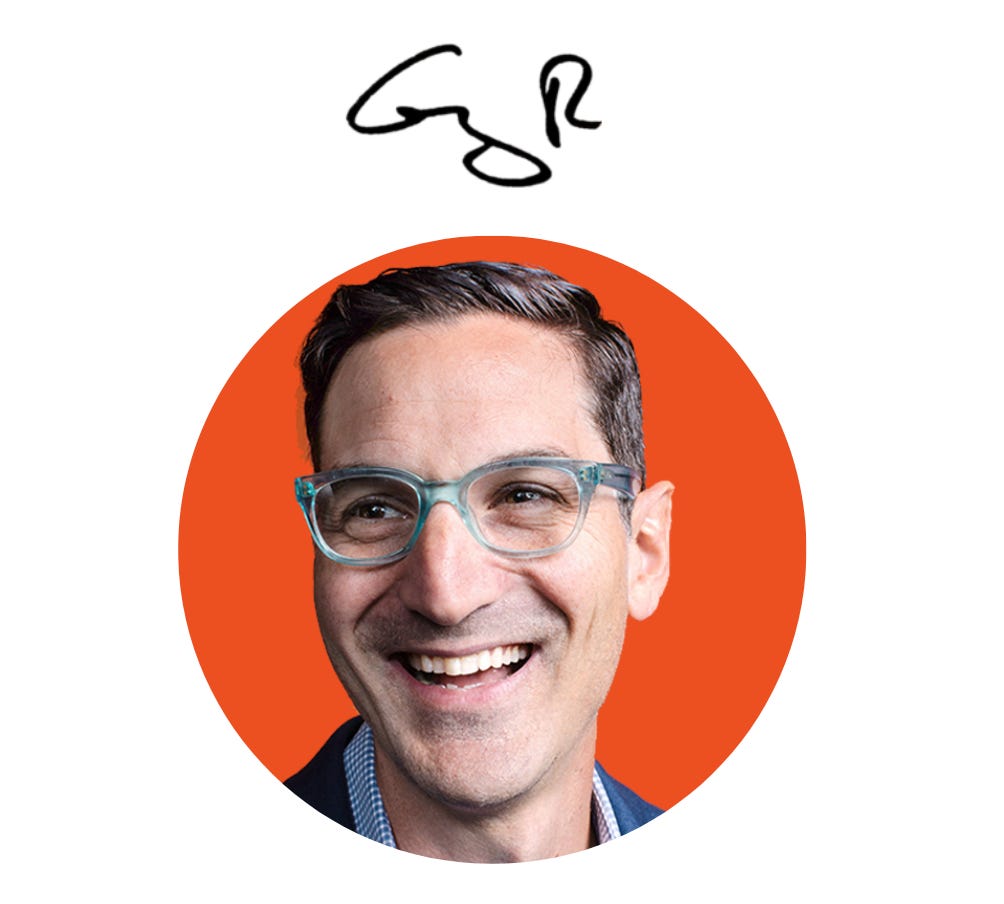



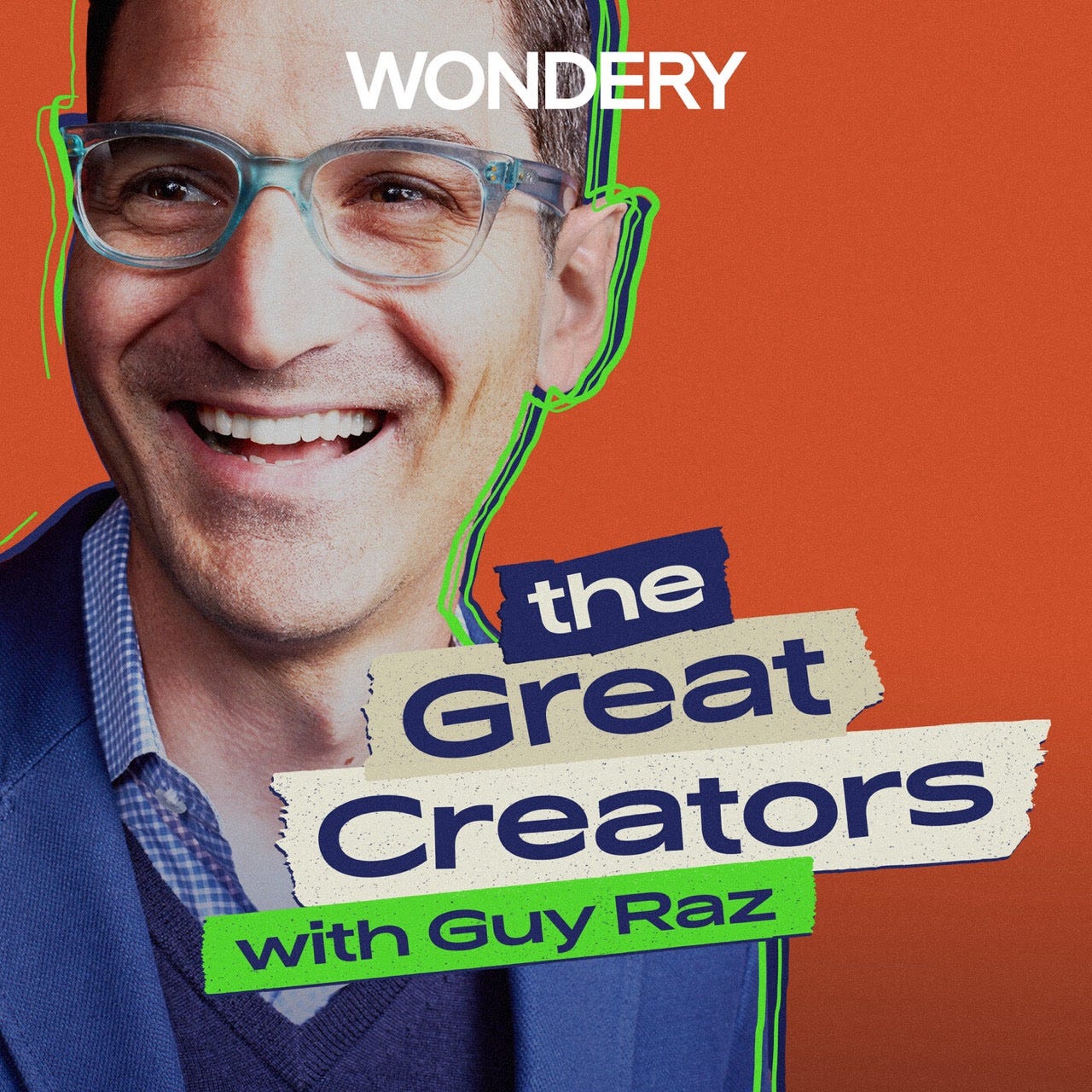
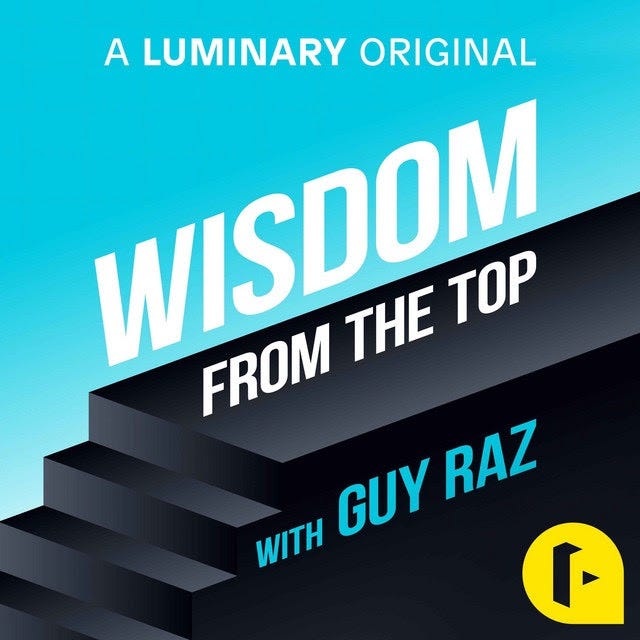


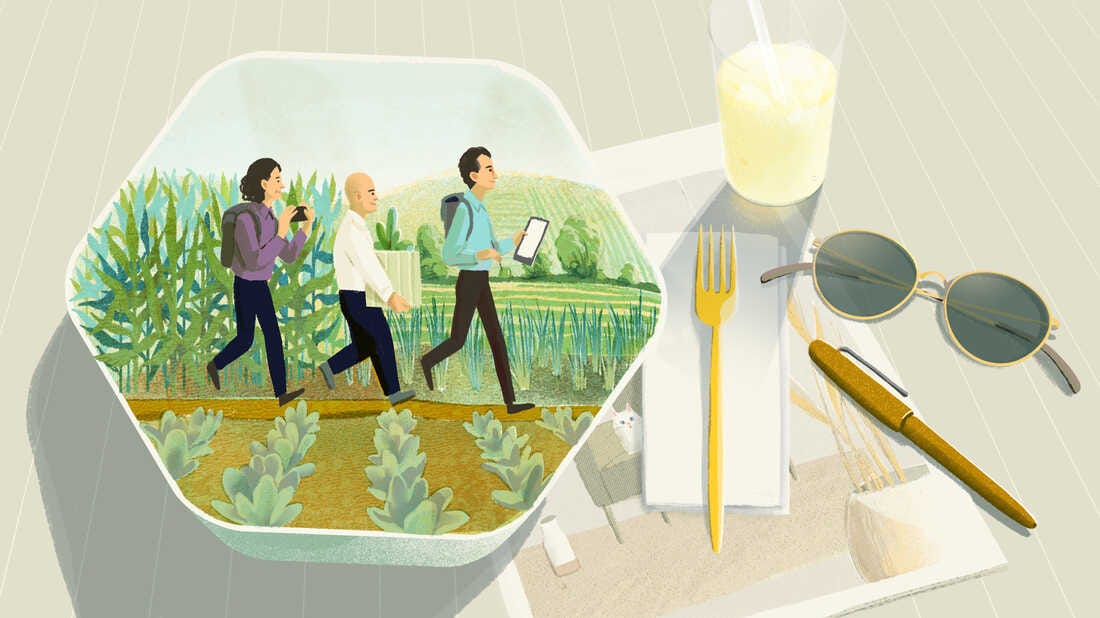
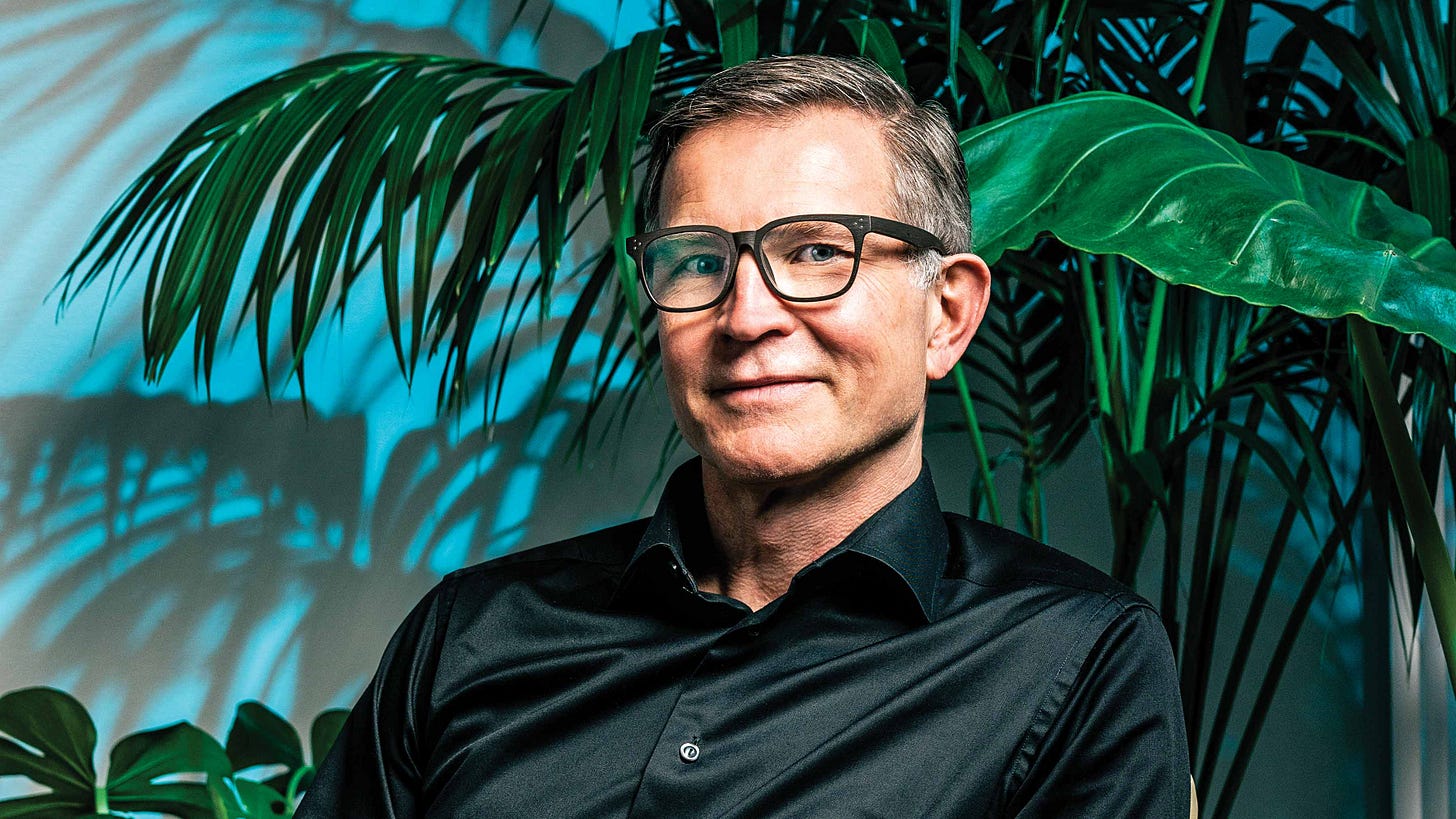
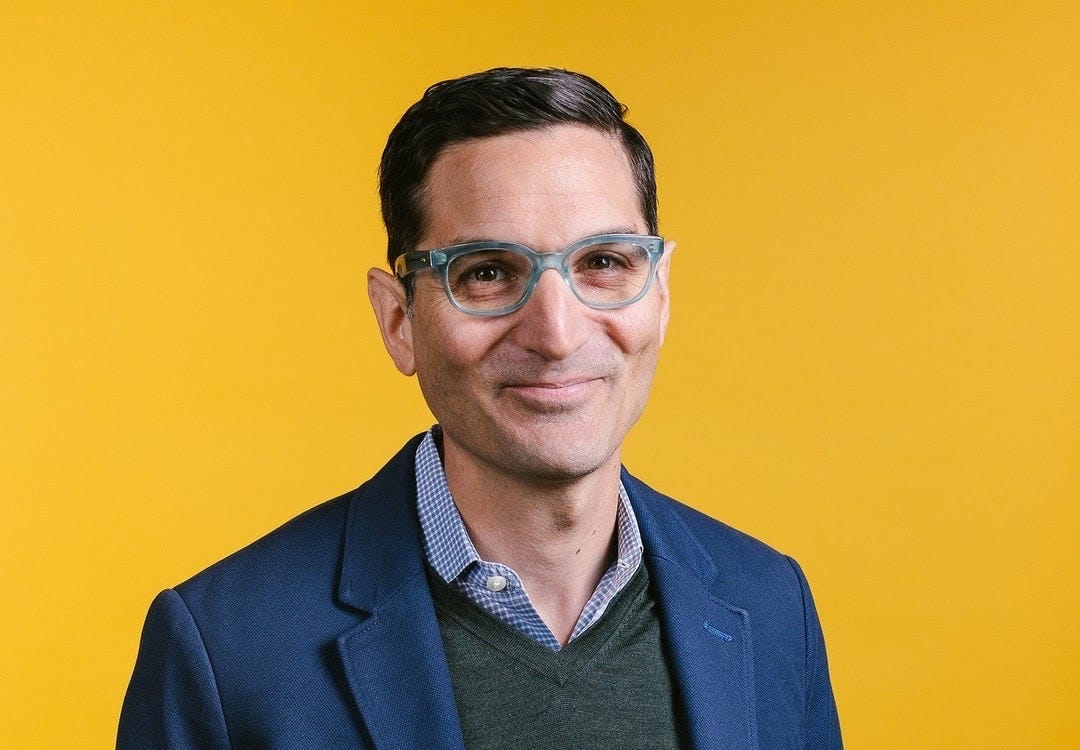
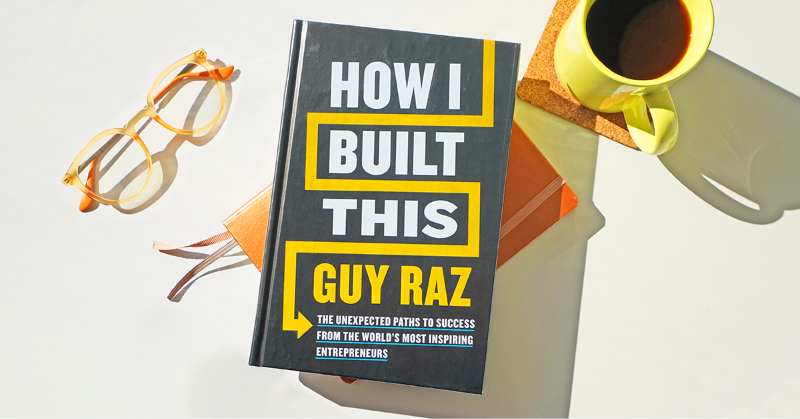

Totally agree—asking for help isn’t weakness, it’s connection. And yes, most people do love being asked.
Building the muscle for "asking for help" is critical to achieving great things--and feeling supported. When I'm hesitating/afraid to ask for help, I remind myself that most people love being asked for advice, so that's where I start.